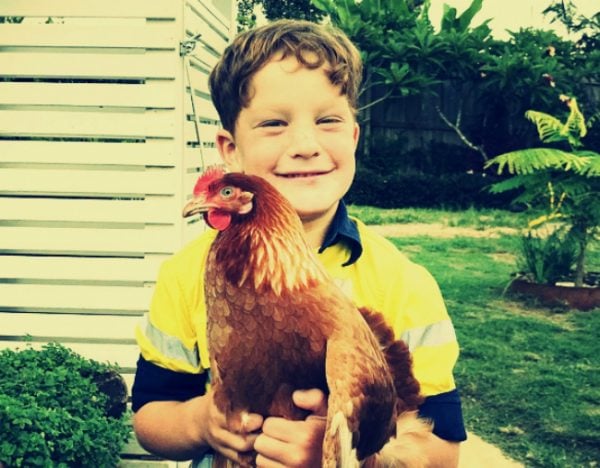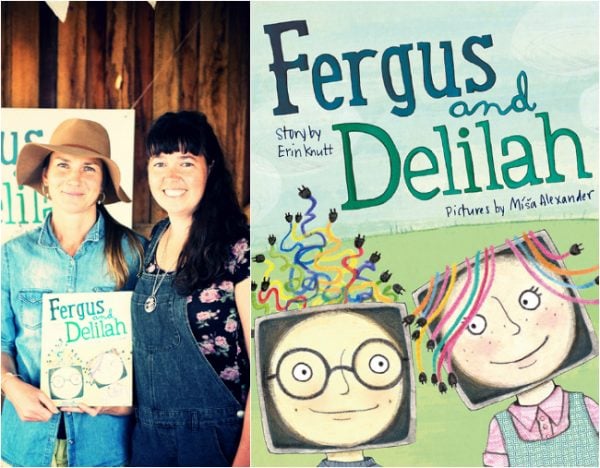“What is his name, that boy by the tyres? The boy with the tangled-up, twisted-up wires?”
“His name is Fergus, he’s fairly well known. He plays in the park, but always alone.”
Fergus Ray Franklin is wired differently to the other kids. He passes time alone, swept up in his own imagination. He spins, he flaps and hums and stares at the clouds, while his peers play together nearby.
Fergus is fictional; a beautifully drawn, fully realised character in the children’s book, Fergus and Delilah. But in the northern NSW beach town of Byron Bay, his real-life inspiration is too learning to navigate the world around him.
That boy is Hugo, the seven-year-old son of the book’s illustrator, Míša Alexander.
“He’s an amazing little boy. He’s very happy and has an incredibly positive predisposition, which really helps him in the world because his communication is really limited,” the mother-of-three told Mamamia. “He’s unable to request things that he needs. We still use a lot of sign language. But he smiles, he’s happy. He wants to interact with other people. He’s really growing.”



